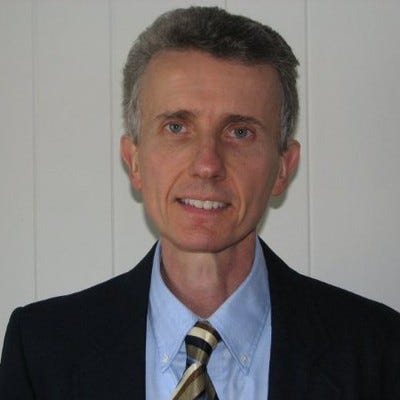The core problem is that recycling rates are too low, said Seaholm, and the solution is to build a robust recycling infrastructure, not eliminate plastics.
December 16, 2022
Matt Seaholm, President and CEO of the Plastics Industry Association (PLASTICS), defended the industry and proposed solutions to the plastic waste problem in his testimony to Congress on Thursday, Dec. 15. His testimony was in response to “unfair and poorly informed” legislation introduced Dec. 1 by two US senators and two members of the US House of Representatives, which the industry previously addressed.
His testimony was to the US Senate Committee on Environmental and Public Works. The hearing was titled, “Examining the Impact of Plastic Use and Identifying Solutions for Reducing Plastic Waste.”
“There’s a saying in our industry: We love plastic; we hate plastic waste,” Seaholm said. “Any molecule of plastic material that leaves the economy is truly a waste. We need to collect, sort, and ultimately reprocess more material. And that goes for all substrates, not just plastic.”
Seaholm provided five examples of plastics that help save lives, including plastic fibers in vehicle airbags; diabetics who rely on sterile, interchangeable plastics that support treatments for loss of kidney function; and hurricane-ravaged neighborhoods without safe drinking water that rely on delivery of water in plastic bottles.
“The list can go on and on, and before it’s suggested these aren’t the types of applications truly at the heart of the discussion, I would point to three proposed pieces of legislation in this Congress that call for the stoppage of production of the plastics used in each of these scenarios,” Seaholm said. “If there’s one thing a pandemic and now a war on the European continent has taught us, stable supply chains are imperative. Producing plastic in America is a good thing that I believe should be embraced as essential, not abruptly stopped.”
Plastic is the preferred material in many applications because of its outstanding performance and because it uses the fewest number of resources to manufacture and transport, he said.
“However, we must also acknowledge that the incredible innovations in plastic materials and products have outpaced our ability to recycle them because infrastructure has not kept up,” Seaholm said. “Our nation’s recycling rates are too low. That is why companies across our supply chain work tirelessly to improve recyclability and invest billions of dollars in the prevention of waste and the technologies to recycle. However, our industry does not control the entire value chain of recycling in America and that is why we need partners to help get these rates where we all want them.”
He said Congress is an important partner in this process and he made the following policy suggestions:
Increase investment in critical recycling infrastructure to ensure that collection, sorting, and processing can keep up with the complexities of all materials in the marketplace.
Promote end-market development for the variety of plastic resins to ensure demand remains for recycled materials. Reasonable and attainable recycled content requirements can help spur investment and guarantee markets for recyclable material.
Encourage innovations in recycling technologies to ensure materials that cannot economically be recovered through traditional methods can still be recycled, moving toward a more circular economy.
Avoid stifling innovation and promising new technologies that are needed.
“There is already real value in post-consumer plastic. These policies will help us better capture it and keep it in our economy,” Seaholm said. “Plastic is essential. Plain and simple. We need it in our lives. But America does not recycle enough of it. Our industry wants to recycle more. Working together I know we can get these rates up. And “together” is the most important word in that sentence. I hope that is the spirit of today’s discussion.”
Other testimonials
Also testifying before Congress Thursday were Eric Hartz, co-founder and President of Nexus Circular; John Peterson "Pete" Myers, PhD, founder, CEO, and Chief Scientist at Environmental Health Sciences; and Judith Enck, President of Beyond Plastics.
Hartz said Nexus Circular is a molecular recycling business based in the Atlanta area that processes hard to recycle plastics, including films, into virgin-equivalent plastics.
After light sorting for suitability, all plastics can be mixed together and heat is used to depolymerize plastics and convert them into liquids that can be reused, he said.
“There is no burning, gasification, or incineration,” Hartz said. While some people equate this to incineration, that’s not correct because this process would fail with oxygen present.
“Our facility meets all state and federal laws. I invite you to visit us.” He added that this type of advanced recycling complements mechanical recycling, which melts and reforms plastics, and both methods are needed to address the plastic waste problem.
Myers said that plastics and the additives that are infused into plastics, are a huge source of endocrine-disrupting chemicals (EDCs) that get into the air, soil, and water and when ingested interfere with the normal function of a body’s endocrine system.
EDCs “hack hormone signaling” and cause a variety of serious health issues, including an increase in infertility and autism, he said. They also have been linked to an increase in cancer rates and immune disorders, he added.
Myers encouraged Congress to begin a testing program for the chemicals that are infused into plastics.
Enck said plastics are part of the climate change issue, and in the next decade, greenhouse-gas emissions from plastics will exceed that of coal.
“Recycling has been an abysmal failure because less than 10% of plastics are recycled,” she said. “We don’t need a magical breakthrough. We need less plastic production and refill and reuse. Local governments are drowning in plastics they cannot recycle. Plastic recycling isn’t working and is having a devastating impact on communities where it is produced and burned.”
About the Author(s)
You May Also Like




